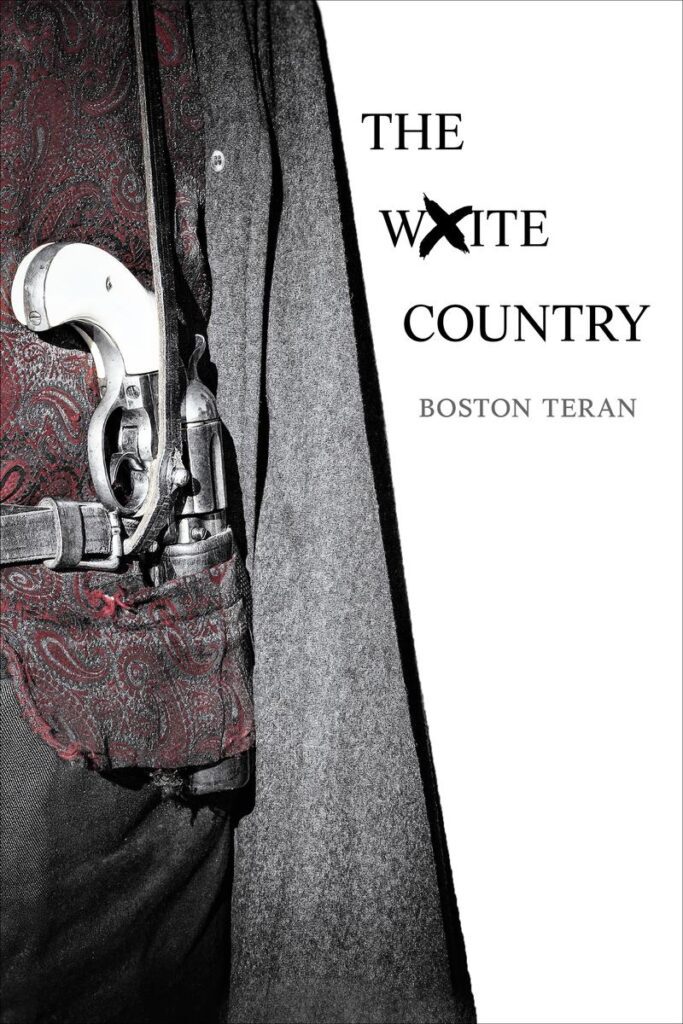By Patrick Millikin
Boston Teran has always been a bit of an enigma. For nearly 30 years, the pseudonymous author has created a body of work that defies easy classification. From contemporary novels such as God is a Bullet and 2023’s Big Island L.A to historical novels such as A Child Went Forth and Crippled Jack, Teran has forged his (or her) own path. Just out is The White Country, the long-awaited sequel to 2009’s The Creed of Violence.
Set in 1911, a time when Texas is rife with racism and unrest, The White Country follows John Lourdes, the first minority-born agent of the Texas Bureau of Investigation. As Mexico is ravaged by famine and political corruption, thousands of desperate people cross into Texas, igniting a wave of hatred and violence that would echo for generations. The border becomes a lawless land, plagued by bandits, drug smugglers, and hooded vigilantes led by a figure known only as “The Whiteman.”
Tasked with uncovering this mysterious leader, John Lourdes is sent on a dangerous mission to Laredo. With only a member of the clergy and a Spanish newspaper editor and his daughter as his allies, Lourdes must navigate a landscape of corruption and terror. His journey takes him through a leper colony in the desert, an assassination attempt during a performance of The Wizard of Oz, and into the heart of a destructive movement, threatening the soul of the nation.
Torn between justice and revenge, Lourdes faces not only external enemies but the demons of his own past, in a story of survival, identity, and the enduring battle against hate.
Patrick Millikin: Your new book comes at an appropriate moment in time. Why did you decide to write a sequel to The Creed of Violence now?
Boston Teran: Relevance… The headwaters of history are forever in play when it comes to relevance. You may write with a testing solitude, with slow, steady wonderment, with untold passions, or fierce immediacy, but relevance has its own set of demands. And that’s because it is always there, waiting on a messenger to strike out and lay some claim on a wound in the world left as yet unattended.
Like the rock band CCNY in their 1970 classic wrote…We have all been here before…And it makes me wonder…What’s going on, under the ground…Relevance is a test, a challenge. It means for you to embrace conflict. It needs for you to embrace conflict. Relevance doesn’t exist without conflict. It cannot be resolved without conflict. And there’s no new type of conflict under the sun. They’ve all been seen before. But are no less deadly.
PM: 1911 is a fascinating period in our history. The spread of the railroads (and other factors, of course, such as the slaughter of the great buffalo herds, the decimation of our Native tribes, etc) helped put an end to the mythic “Old West” but vestiges of the of the frontier era remained, alongside new inventions like the automobile. What drew you to writing about this particular era?
BT: America was facing a preeminent clash of cultural profiles. New inventions, new ideas – like loudspeakers, air conditioners, Victrolas that played “Take Me Out to the Ball Game,” The Wizard of Oz being performed in dusty auditoriums.
America was like a great young prizefighter trying to find his way, his place, with a world of promise around him. A world that also still feasted on everything from avarice to xenophobia. A country growing richer and more powerful in its social poverty. A country that could not shed itself of the myths that enticed it with greatness as much as held it back, kept it down.
Would America become Rawbone, or John Lourdes. Would it be forever both in timeless conflict?
PM: Racial conflict and white supremacy are deeply embedded into the country’s DNA. This paragraph really sums it up well:
“It was whiteness that meant power, it was whiteness that meant the rule of law. But more than the rule of law, it meant sanctity, it meant heaven and it meant God, and in effect it turned the Mexican-American into a dead rattlesnake.”
This connection between whiteness and God seems, sadly, to be gaining traction once again in this country. Is this an accurate statement, or thus has it always been?
BT: It has always been. And always will be.
Even if there was no color white, no god to speak of. White and god would still exist in partnership as they do. There would be something else to take their place, to be their stand in. And why – because man is a creature of endless evil possibilities.
PM: The real heroes of the novel, alongside Lourdes, are of course Eduardo Barros and his daughter, Marisita. The Journalists who face grave danger and often make the ultimate sacrifice to tell the truth. A modern-day equivalent would be those fearless journalists in Ciudad Juarez back in the early 2000’s, and in Gaza, and in so many other places.
Can you talk a little bit about them? Were they based on historical figures, or also composites?
BT: In July of 1907, A Mexican printer and political activist named Manuel Sarabia was kidnapped off the streets of Douglas, Arizona and illegally arrested. At the hands of local sheriffs and Pinkerton agents the activist was delivered to rurales to collect the reward placed on his head by the Mexican government.
If it weren’t for a lone townsman responding to Sarabia’s dire cries this incident might have been left to an unmarked grave.
That dusty incident in the Douglas newspaper led me to a litany of political players on both sides of the border from Mother Jones and Jay Gould to the people who would become Eduardo Barros and his daughter.
PM: Are there historians that you return to for inspiration, and are there writers (fiction or nonfiction) today who you cite as influences?
BT: I scour rare books, journals, diaries, letters that are of a time and place. Books of photographs, particularly, books created by historical societies of towns and counties and the lives that passed on there. I find much that is literary in the world of photographers from the likes of Henri Cartier Bresson and Sebastiao Salgado. I look for moods as much as details, passed over facts, human moments, The Decisive Moment as it is defined. I read newspapers from all over the country, from every decade. One could cut and paste the front pages of a hundred together and they would resemble any front page of a newspaper – what’s left of them – that you read today. There is no shortage of humanpredicaments, it seems.
I make it my business to search without hunting, to discover while not looking. To be open to the elusive, and the jewel in mistakes.

